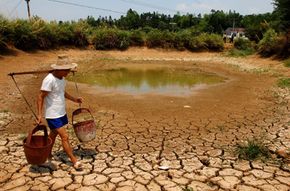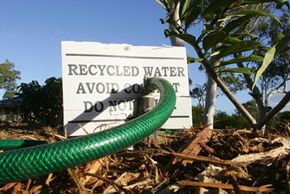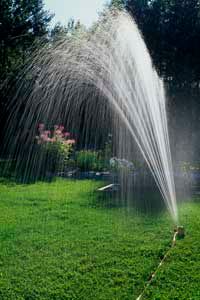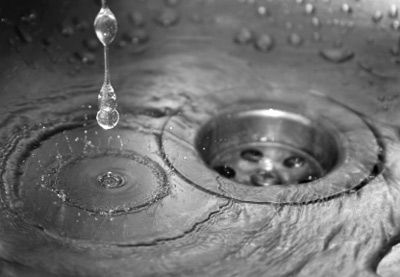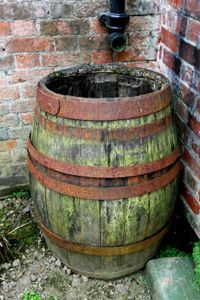Due to a one-two punch of a booming population and severe droughts across the globe, the Earth is in what the United Nations is calling a "water crisis" [source: U.N.]. It's possible to make do with just a few gallons a day, as people do in many parts of the world, but households in the United States use an average of 400 gallons of water per day [source: EPA]. With a growing awareness of this disparity, some Americans are beginning to think about ways to cut down on their water usage. In some states -- especially in the southeastern and western United States -- residents don't have a choice: Many state governments have issued bans on outdoor watering and are asking residents to take steps to cut their water by as much as 20 percent [source: WRAL].
Advertisement
Conserving water is a great place to start. Running your dishwasher and washing machine only for full loads, for example, can cut a household's water consumption by an average of 1,000 gallons a month [source: Water -- Use It Wisely]. For some, though, simple water conservation doesn't go far enough. One thing they may consider is recycling their home's gray water.
Gray water is all of the wastewater that drains out of your washing machine, sinks and bathtub or shower. It can be easily treated and recycled in your home. In developing countries, the concept of reusing water is old and established, but in other nations where people consider water plentiful, it's used once and thrown away.
The problem has been getting steadily worse. In the United States, for example, the national population increased by 52 percent from 1960 to 1990, while water consumption increased 300 percent in the same period [source: University of Georgia]. The increase in demand on water -- and the effects of reusing water on the environment and public health -- are making gray water a viable alternative to simply going back to the faucet for more.
Areas where water is scarce -- like Texas and parts of Australia -- have large water recycling plants that treat gray water and send it back for use, but since gray water is easy to treat, it's becoming increasingly popular for people to collect and reuse in their own homes. An entire cottage industry -- born out of the green movement -- has sprung up around gray water. People interested in reusing the water in their homes can have commercially produced gray water recycling systems professionally installed. This sudden surge in interest in gray water is a bit ahead of state governments, many of which are still studying water reuse. In some states it's not legal to collect and use gray water, and in others it's necessary to obtain permits and observe restrictions first.
So, what exactly can you use gray water for? Read the next page to find out.
Advertisement
